At the best of times, running a business is an uphill battle, an endless struggle to innovate ideas that put you ahead of the competition and continually turn a profit. In a post-COVID-19 world, however, those challenges have not only grown in scale but morphed into something entirely unrecognizable. In this series, we talk to expat-entrepreneurs and find out what they’re doing to remain successful in business, and happy at home.
For those who were in Beijing during the 2003 SARS outbreak, the advent of COVID-19 felt more like a massive nightmare relived. Memories of a country shut down and a society crippled with fear wasn’t far from those who had witnessed the first pandemic sweep through China and the subsequent changes it imprinted on the psyches of the then Beijing residents. For Jen Lin-Liu, author and founder of Black Sesame Kitchen and her family, a much-needed family vacation turned into anxious expectation as news of just how severe the virus was to become was yet to come to light. And as one of the original SARS expats, she knew all too well just how bad things could become, and she was forced to make decisions that only a concerned mother would to keep her family safe, possibly at the expense of her business. But as they say, all’s fair in love and war, and now global pandemics as the rules of the game have changed from profitability to sustainability and surviving to see the end of the pandemic.
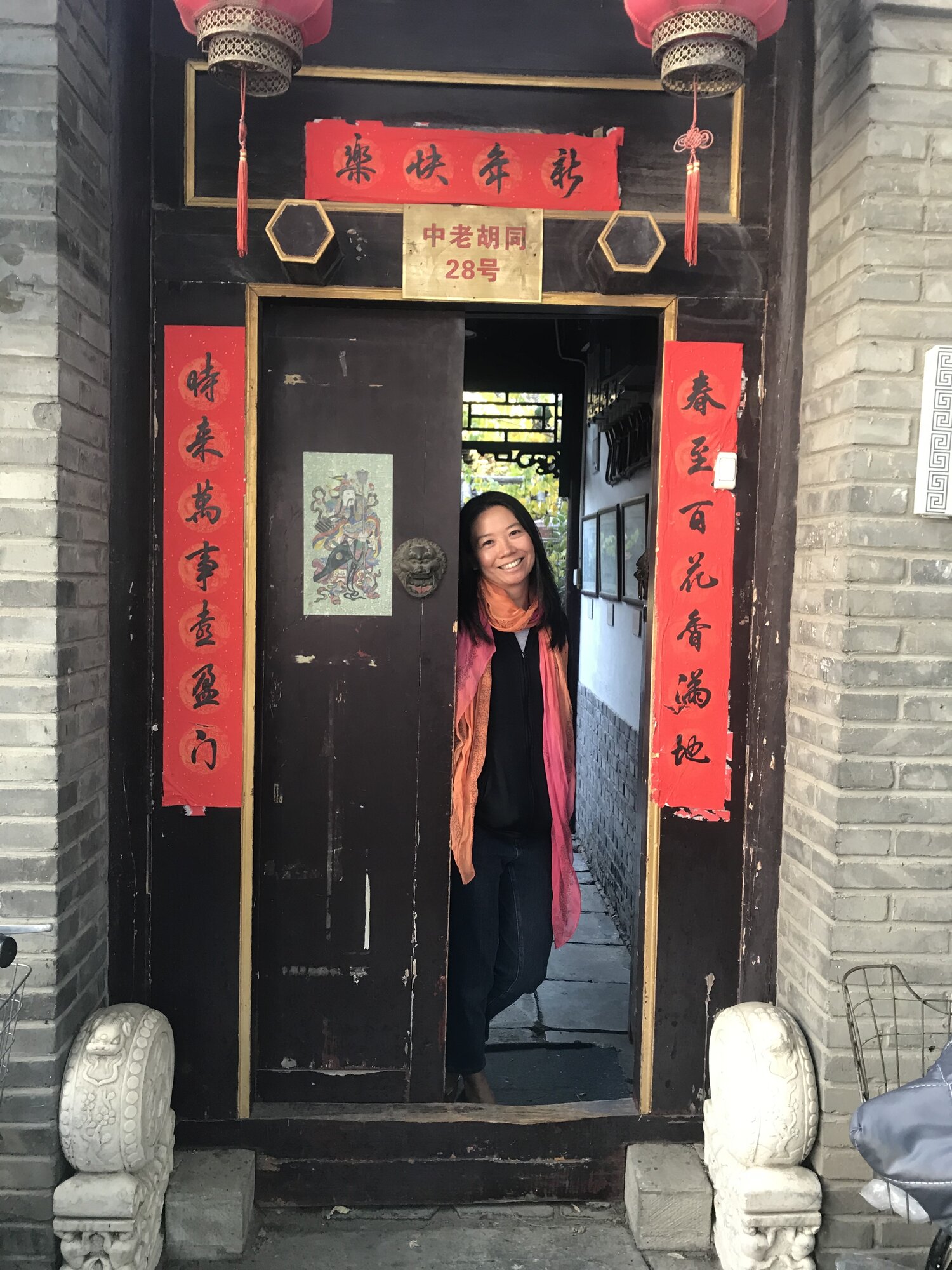
Jen Lin-Liu
How long have you and your family been in China and what made you decide to move this far East?
I have lived in Beijing on and off since 2000 when I first came on a Fulbright fellowship. It is our second home beyond the United States, where my husband and I are from. Most recently, my husband and I returned to Beijing with our two children in 2017. We wanted our children to study Mandarin and I wanted to help the cooking school that I founded, Black Sesame Kitchen, with operations.
What do you do and how long have you been in business?
I am an author of two cooking and travel memoirs, Serve the People and On the Noodle Road, and the founder of Black Sesame Kitchen.
What were you and your family’s initial reactions when COVID-19 first hit the news?
We first learned of COVID-19 while we were on an extended winter vacation in the United States. We were hoping that it would be a small, contained outbreak.

What were your expectations as far as the virus and its effect on daily life and business in Beijing?
I was in China during the outbreak of SARS in 2003 and when we first started reading about COVID-19, I believed it might be something similar, if not more mild: that it might disrupt life and be a public health risk, but that it would eventually be controlled within China’s borders. I was a journalist for Newsweek in 2003 and reported on SARS – I remember flying on almost empty planes within China, wearing masks for a while before giving up on them, and staying at an near-vacant Ritz Carlton hotel in Hong Kong for less than $100 a night.
This time around, for the first couple of weeks, in mid-January, while we were still in Colorado on a ski vacation, we paid closer attention to the news but still feeling like it was going to be contained. It began to dawn on me that things were going to change when my mother, who lives in California, began calling me almost daily. She had planned to come and visit us when we returned to China, and so had my husband’s parents.
My mother asked me if it was alright if she canceled her trip. I told her of course. My in-laws decided to postpone buying their plane tickets. On one of my daily calls with my mom, she asked if we were going to return to China. I told her I was confident we were going to return. This was probably the third week of January – at that point, I still believed we were going to return as scheduled in early February.
We made the decision not to return just two days before our flight was scheduled to leave, after we learned that the school my children attended would not be resuming as scheduled. The main reason we did not go back was not our fear of COVID-19 as much as the idea of quarantining my young children and myself at home in Beijing without any idea when schools would reopen.
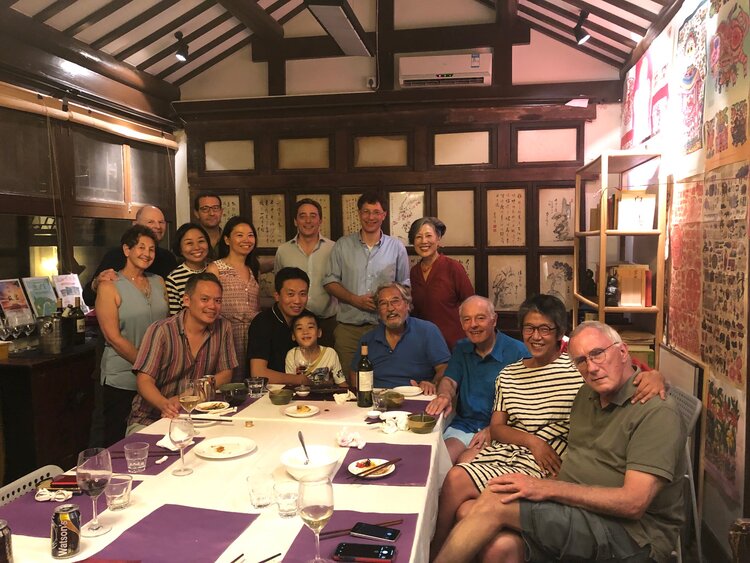
What has been the reality for you and your family?
We have temporarily relocated to Washington D.C. where my husband has been able to continue his work. My kids have started attending a public school. I have been warmed and encouraged by how easily they have made the transition. The parents and teachers here have been so friendly and warm. There are even a few Chinese families at the school. My daughter has been helping one of her Chinese classmate, who doesn’t speak English, by being her translator. My biggest worry was for my children, but they have been resilient; it helps they are close, both in age and emotionally.
How has your business been affected by the current situation?
Black Sesame Kitchen, my cooking school and dining space, has been affected hugely by this crisis. We have had been able to operate since early February and it looks like this will continue for a period. We hope to have better news sometime in the future and are eager to resume operations. In the meantime, my staff are working on a series of “How to Cook At Home” videos, that we are circulating on WeChat and YouTube.
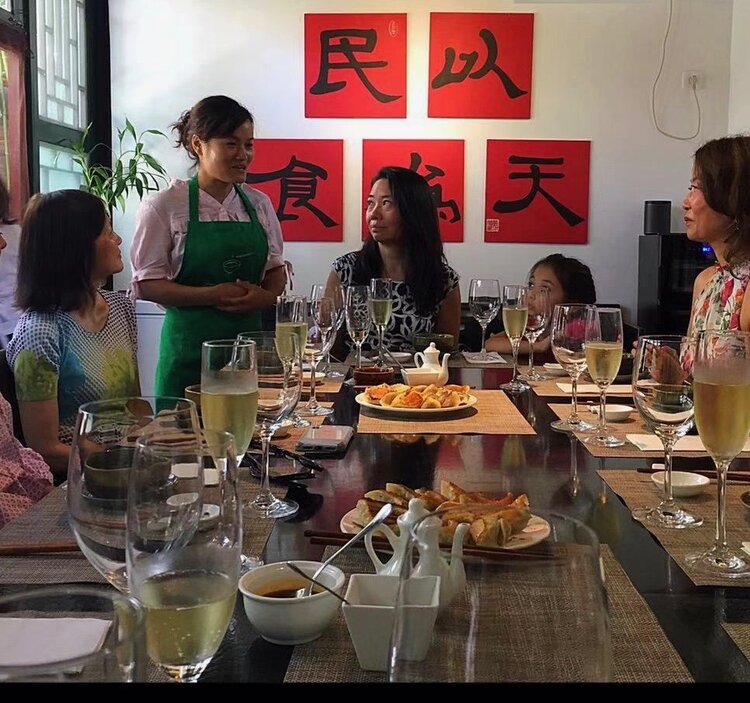
What form of support have you received from the expat community here in Beijing for both your family’s and business’s well-being?
I have been in touch with our friends in the expat and local community In China, some of whom have remained in country while others have fanned out across the globe – from Thailand to the U.K. to Montana. It has been great for my kids to connect with their friends via WeChat and for me to connect with friends and colleagues in the industry to discuss how everyone is moving forward.
Do you believe the current situation will permanently change the face of business in Beijing? If so, why and how? If not, then why?
I don’t believe this will affect China’s entrepreneurial and hard-working spirit. We are in the midst of opening a new restaurant in Qianmen, and still plan to do so. My staff are eagerly awaiting the day that we are able to serve our customers again.
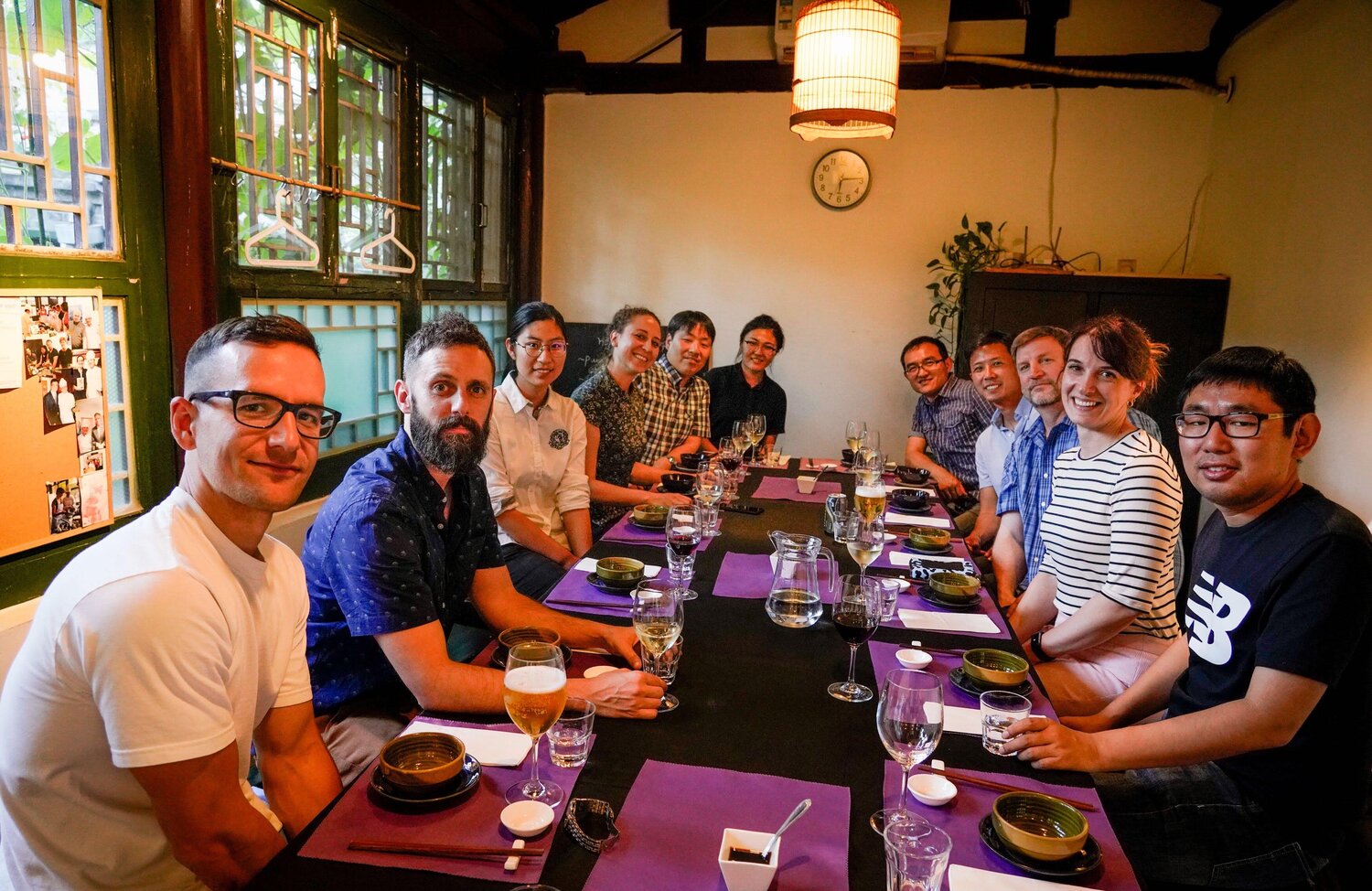
Moving forward, what are some of the plans you have set in place for your business to ensure it is not adversely affected by such an unexpected situation?
Black Sesame Kitchen has been reliant on expatriates and international business and leisure travelers. Our new restaurant in Qianmen will also provide for this same audience while also aiming to serve young millennial Chinese and families.
Has the current situation deterred you from continuing to be a part of the business landscape in Beijing or are you here to stay?
I have always believed in the long term. We are here to stay. Black Sesame Kitchen has been in business since 2008, and while this is the hardest crisis we have ever faced, we remain positive and confident. Trying times have made the staff and me more committed to the business and to reevaluate our long term goals for the better.
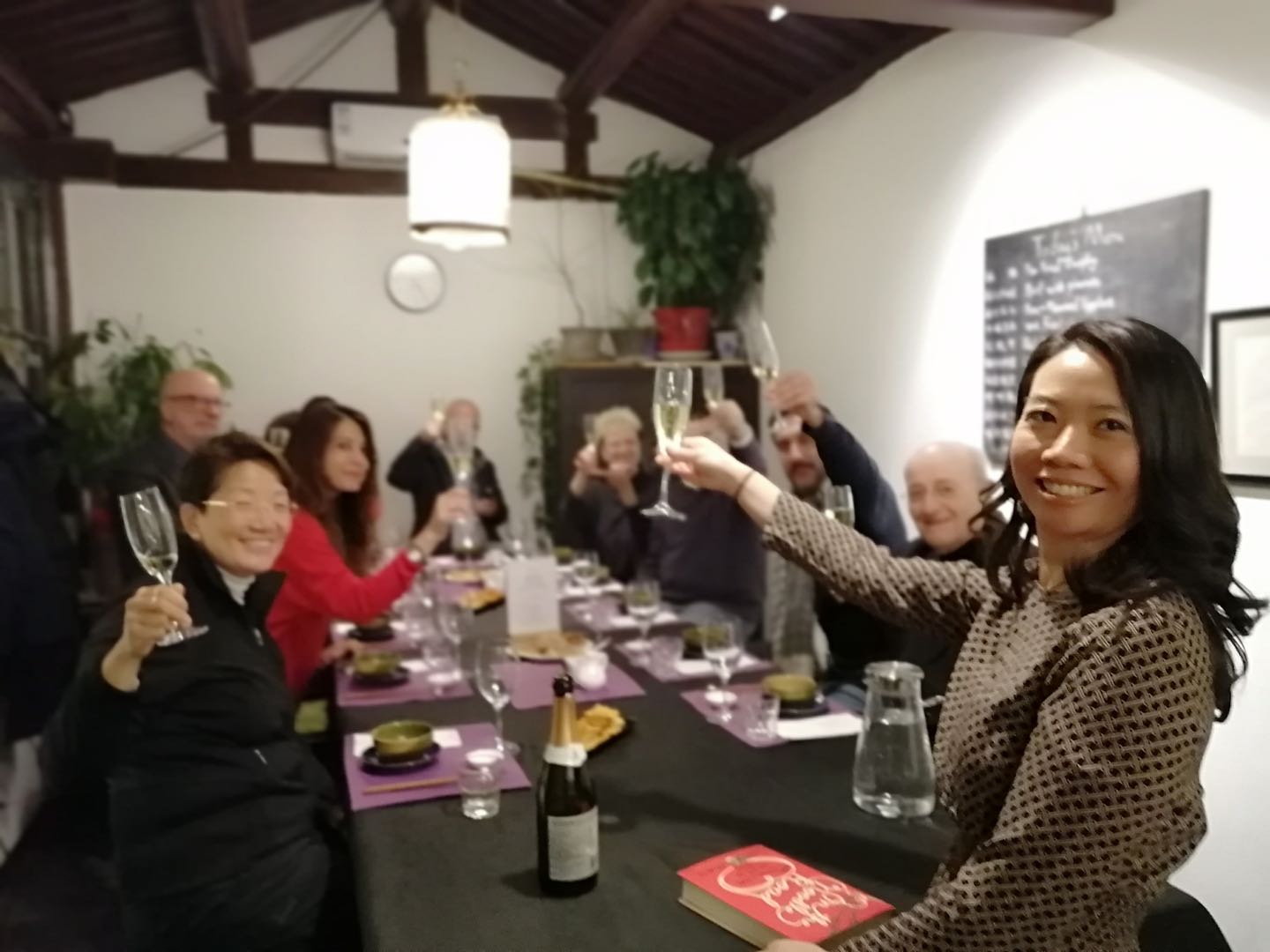
What advice would you give to other business owners in Beijing at this time?
Think about the long term and not just the short term. Reevaluate if this something you want to do; maybe you will decide that it is not. For those who decide that their particular business is something they remained committed to, it will only deepen your resolve.
How can other expat families show their support for expat business owners in Beijing?
Black Sesame Kitchen aims to begin in-home catering operations as soon as we are able to, perhaps sooner than re-opening our courtyard or new restaurant. Should you have any in-home catering needs, please contact us. Once we are able to start normal operations again, we expect we will continue community-building activities in our courtyard that have brought locals and expatriates together, like our Chinese holiday open house parties that have been so successful.
Any words of encouragement or hope for the international community as a whole in Beijing?
My years in Beijing have given me the strongest, most enduring friendships of my life. Beijing has a way of attracting adventurous, deep thinking, compassionate people of diverse backgrounds and interests. I expect that we will resume building that community once we return.
Photos: Courtesy of Jen Lin-liu, www.blacksesamekitchen.com




